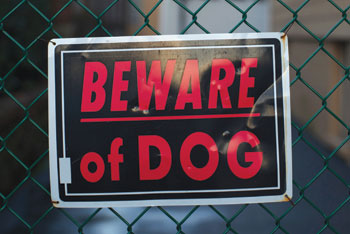 Question
Question
I have heard about additional duties lawyers now have to ensure that confidential information is not disclosed to other people. What are these additional obligations?
Answer
Recent changes to the ABA Model Rules relate to the efforts lawyers must take to ensure that confidential information is not inadvertently disclosed or disclosed through unauthorized means. The Wisconsin Supreme Court has not yet considered these changes to the Model Rules, but clearly they are good guiding principles that lawyers must consider when dealing with client information.
Anything that a lawyer learns during the course of representing a client is considered confidential and cannot be disclosed under the requirements of SCR 20:1.6. Thus, a lawyer must be very careful when handling client information. The Rules of Professional Conduct previously indicated that “strategic” information is confidential; however, the language of SCR 20:1.6 clearly covers all information that a lawyer learns or acquires during the course of representation. The duty of confidentiality is a crucial duty owed to clients by lawyers and is a cornerstone of the attorney-client relationship.
Recent amendments to Model Rule 1.6 deal with the reasonableness of lawyers’ efforts to prevent the inadvertent or unauthorized disclosure of confidential information as well as the reasonable precautions lawyers must take to prevent information from being disclosed to unintended recipients. Under the Comment to Model Rule 1.6, the factors to be considered when determining the reasonableness of the lawyer’s efforts to protect information include the following:
- The sensitivity of the information;
- The likelihood of disclosure if additional safeguards are not employed;
- The cost of employing additional safeguards;
- The difficulty of implementing the safeguards; and
- The extent to which the safeguards adversely affect the lawyer’s ability to represent a client (that is, devices or programs are too difficult to use).
Lawyers must consider these factors when determining the steps they and their firms must take to ensure that information obtained during the course of representation is kept confidential. Lawyers must consult with appropriate persons to make sure that the proper devices are being used and proper safeguards are in place to ensure that information remains confidential and will not be inadvertently disclosed.
The Comment also talks about the reasonable precautions that a lawyer must take to prevent information from being transmitted to unintended recipients. The Comment states that factors to consider include “[t]he level of privacy needed for the information” and “[t]he extent to which the privacy of the communication is protected by law or by a confidentiality agreement.” In addition,
“The duty does not require the lawyer to use special security measures if the method of communication affords a reasonable expectation of privacy. …
“[A c]lient may require a lawyer to implement special security measures or may give informed consent to use a means of communication that would otherwise be prohibited by the Rules.”
Above all, the lawyer must be certain that the method used to communicate information to a client is reasonably secure and will protect communications to the client from inappropriate release or disclosure. Lawyers are not expected to anticipate an intentional breach of a secured communication procedure by a criminal act but certainly must take appropriate steps to ensure that it will be difficult to commit such a breach in all transmissions to clients. Special measures may have to be taken, depending on the nature of the communication or clients’ stated desires. Lawyers should discuss with their clients the means they will use to communicate and ensure that each client is comfortable with the security of those methods.
Because they are governed by a reasonableness standard, these comments do not place undue burdens on lawyers, but do suggest that lawyers and law firms pay additional attention to ensuring that confidential information is protected and not improperly disclosed during communications.
